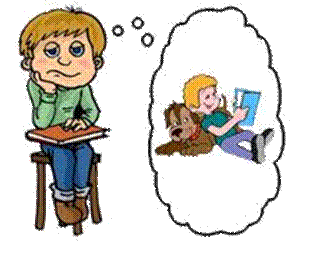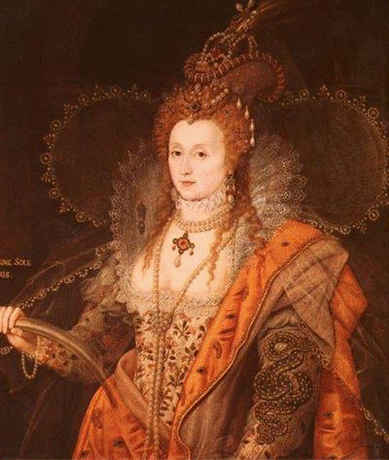 |
What do you usually do? . Grammar corner. Past Simple Tense (ПРОСТОЕ ПРОШЕДШЕЕ ВРЕМЯ)
|
|
|
|
What Do You Usually Do?
what do you usually do in the evening?
I usually read comic books

.
What time do you usually get up?

What time do you usually eat breakfast?

What time do you usually go to the university?

What do you usually do after university?

What do you usually eat for lunch?

What do you usually eat for breakfast?

What do you usually wear to the university?

What do you usually do in the evening?

What do you usually do on the weekend?

What do you usually watch on TV?

7. Draw a chart like the one below and arrange your activities into the columns (2-3 examples)
| enjoyable | boring | relaxing | dangerous | creative | terrible |
GRAMMAR CORNER
PAST SIMPLE TENSE (П Р О С Т О Е П Р О Ш Е Д Ш Е Е В Р Е М Я )
|
У Т В Е Р Ж Д Е Н И Е |
О Т Р И Ц А Н И Е |
В О П Р О С |
К Р А Т К И Е | ||||||
|
О Т В Е Т Ы | |||||||||
| I played tennis. | I didn’t | play | Did | I | play | Yes, | I did. | ||
| tennis | tennis? | No, I didn’t. | |||||||
| You | listened | to | You didn’t lis- | Did you listen | Yes, you did. | ||||
| music. | ten to music | to the music? | No, | you | |||||
| didn’t. | |||||||||
| He repaired a com- | He didn’t repair | Did | he | repair | Yes, | he did. | |||
| puter. | a computer | a computer? | No, he didn’t. | ||||||
| She | danced | at | She | didn’t | Did she dance | Yes, | she did. | ||
| school. | dance at school. | at school? | No, | she | |||||
| didn’t. | |||||||||
| It helped. | It didn’t help. | Did it help? | Yes, | it | did. | ||||
| No, it didn’t.
| |||||||||
| We studied at the | We didn’t study | Did we study? | Yes, | we | did. | ||||
| university. | at the university | No, | we | ||||||
| didn’t. | |||||||||
| They worked in the | They | didn’t | They | didn’t | Yes, they did. | ||||
| garden. | work in the gar- | work | in the | No, | they | ||||
| den. | garden. | didn’t. | |||||||
HOW TO ASK A SPECIAL QUESTION
WHAT BOOK DID YOU READ?
HOW DID YOU READ BOOK?
WHEN DID YOU READ A BOOK?
WHAT TIME DID YOU READ A BOOK?
WHY DID YOU READ THIS BOOK?
WHO DID YOU READ THE BOOK TO?
HOW OFTEN DID YOU READ BOOKS?
8. Make a special questions, using these expressions
Listen music, watch a film, play computer games, go to the shop, meet your friends, help your mother, arrive at the university, sit up late, do the homework, translate texts, work in the garden, go to the cinema, swim in the sea, drink coffee, wash the dishes, ask for the help, pass exams.
9. Read 2 texts and find regular and irregular verbs in
Past Tense
Leonardo da Vinci
Leonardo Da Vinci (1452-1519) was an incredible man. He worked as an architect, artist, mathematician and scientist. He also worked as a military engineer and was a good musician. When he
was a child, Leonardo liked school but he hated Latin. In 1466, Leo-nardo’s family moved to Florence and he finished school.

In 1482, he moved to Milan and started to work for the Duke of Milan.
He designed many buildings for the Duke. He also studied mathematics. His drawing of the Anatomy of a Man showed him to be a great biologist. In 1502, he returned to Florence and painted the Mona Lisa. He carried this painting with him when he travelled. From 1514 to 1516, he lived in Rome and continued his scientific experiments. He died in France in 1519.
DID YOU KNOW?
· Leonardo da Vinci wrote from right to left – you needed a mirror to read his handwriting.
· He was a genius – he had the ability to write one sen-tence with his right hand and a different sentence with his left hand.
· He invented scissors.
· He made architect’s plans, but never built a building.
· He lost most of the paintings and drawings he did in
Milan.
· In his notebooks, there were plans for a tank, a heli-copter and submarine.
· His scientific observations were hundreds of years before their time.
A GREAT LEADER
Elizabeth I was Queen of England and Wales from 1558 to 1603. It was a very exciting period of discovery. Francis Drake sailed around the world and Walter Raleign went to America – he found tobacco and potatoes there and introduced them to Europe. It was also a Golden Age in English History for painting, music, archi-tecture and literature. Shakespeare wrote great plays in this period.
|
|
|
When Elizabeth was born, her father, Henry VIII, was angry because his new child was a daughter – he wanted a son. He execut-ed Elizabeth’s mother and married again. He sent Elizabeth away from him. Elizabeth was unhappy but she was good at school. She spoke French, Latin, Greek and Italian. She also loved the theatre, but in the 16th century there were no actresses – men played all the parts! Elizabeth’s half-sister, Mary, became queen in 1553. She was a Catholic. She put Elizabeth in prison. When Mary died, Elizabeth became the first Protestant queen. People wanted her to marry and have children. They thought she needed a man to help her. She was secretly in love with a man called Robert Dudley, but she never be-came his wife.

Elizabeth was a great queen. She organized her government and England became rich and strong. There were wars – Spain tried to invade England – but there was also a long period of peace. Eliza-beth was a successful woman in a man’s world. She died in 1603.
10. Write these regular verbs in the Past Simple
The famous Russian dancer Vaslav Nijinsky ………(live)
from 1890 to 1950. As a small child, he ………(learn) dancing from
his father. At the Nijinsky’s home, Vaslav ………….. (dance) with
his brother and his little sister. At the age of nine, he ………(move)
to St Petersburg and …………(start) dance lessons at the Imperial
School of dancing. He ………(study) dancing for eight years with
Russian’s top ballet teachers. Between 1909 and 1917, he ……. (travel) in Europe, the United States and South America. He
………(marry) Romola in Buenos Aires, Argentina in 1913. Be-
tween 1919 and 1950 he ……(live) in Switzerland, France and Eng-
land. He …….. (die) in London in 1950.
11. Match parts (1-10) of the sentences with the endings (a-h). Then, in your notebook, write the complete sentences with the verb in the Past Simple.
1) The Russian Revolution (start)
2) Gustave Eiffel (design)
3) Alexander Flemming (discover)
4) Vincent Van Gogh (paint)
5) Marilyn Monroe (marry)
6) Princess Diana (die)
7) Alexander Graham Bell (invent)
8) Marco Polo (travel)
9) Leonardo Da Vinci (study)
10) In the nineteenth century children (work)
a) in Paris in 1997
b) in mines and factories
c) Latin at school
d) the telephone
e) penicillin
f) Sunflowers
g) the Eiffel Tower
h) three times
i) to China in the thirteens century
j) in 1917.
12. Make a Past Simple sentence with the words in the square. You must also use an expression of time: yesterday, last weeks, 2 days ago, last month, 2 months ago, last year. Ask your groupmate when did he/she do this activity?
Example: I played baseball last week. When did you read
book?
| play | read book | go | to | buy bread | meet friends | |||
| baseball | school | |||||||
|
| ||||||||
| paint | do | home- | score goal | win prize | get 5+ | |||
| house | work | |||||||
|
|
| |||||||
| clean | sing song | fix bike | playthe | go to the park | ||||
| room | piano | |||||||
|
| ||||||||
| see movie | get angry | do | home- | go skiing | make snowman | |||
| work | ||||||||
|
| ||||||||
| go hiking | ride | a | write letter | take a bus | send an e-mail | |||
| horse | ||||||||
13. Read the text and translate
|
|
|


